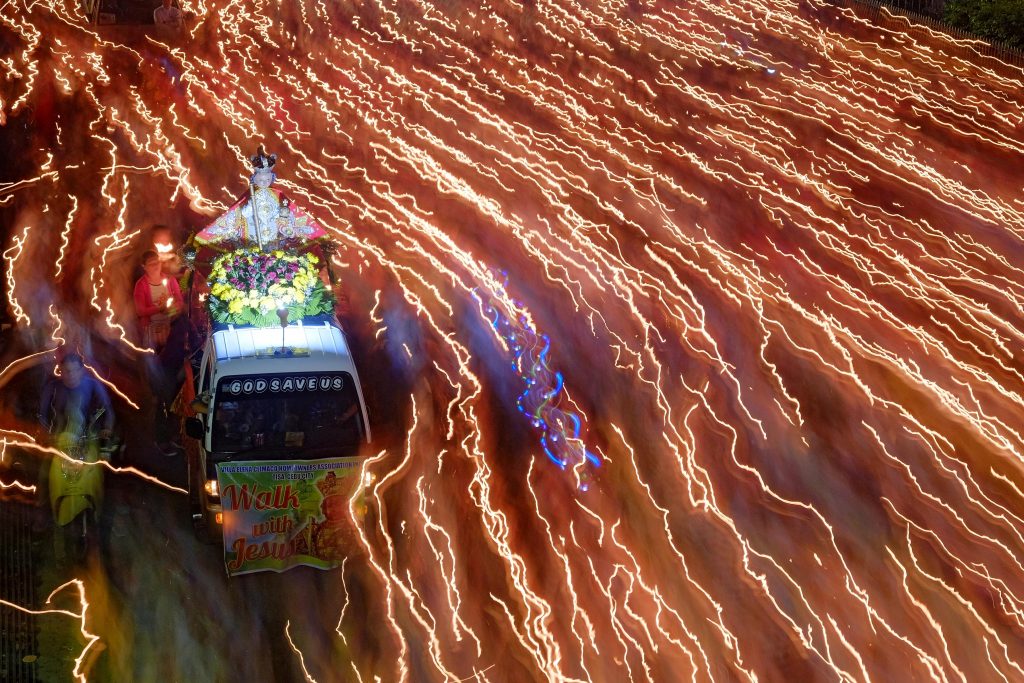
After seven years of Pope Francis-watching, I’ve learned not to expect thunderbolt and lighting from the leader of the world’s 1.3 billion Catholics.
The pope filled his homily marking 500 years of Christianity in the Philippines on Sunday, March 14, with gentle parables on the true joy that comes when sinners realize we “are loved gratuitously.”
That may have disappointed those waiting for a sermon on the darkness enveloping Asia’s only Catholic majority nation.
Tens of thousands of poor drug suspects and more than 300 activists have been killed in the Philippines under four years of President Rodrigo Duterte.
The country also tops Southeast Asia in COVID-19 infections. After the world’s longest lockdown in 2020, it chalks up new cases in the 5,000s daily.
Duterte has ordered cops again to rope in and punish violators of health guidelines, though his harsh national police chief, Debold Sinas, is one of those repeat violators.
The pope did not address what fills headlines in the country of close to 86 million Catholics.
Disconnect
The pontiff, head of state of the Vatican, shocks conservatives with his embrace of “the others.”
But he isn’t prone to confront power and has warned many times against fanning disagreement and conflict.
It really is within more narrow theological issues that Pope Francis has the most impact. He has won praise — and raised hackles — with talk and gestures that bring back the banished as equals at the table.
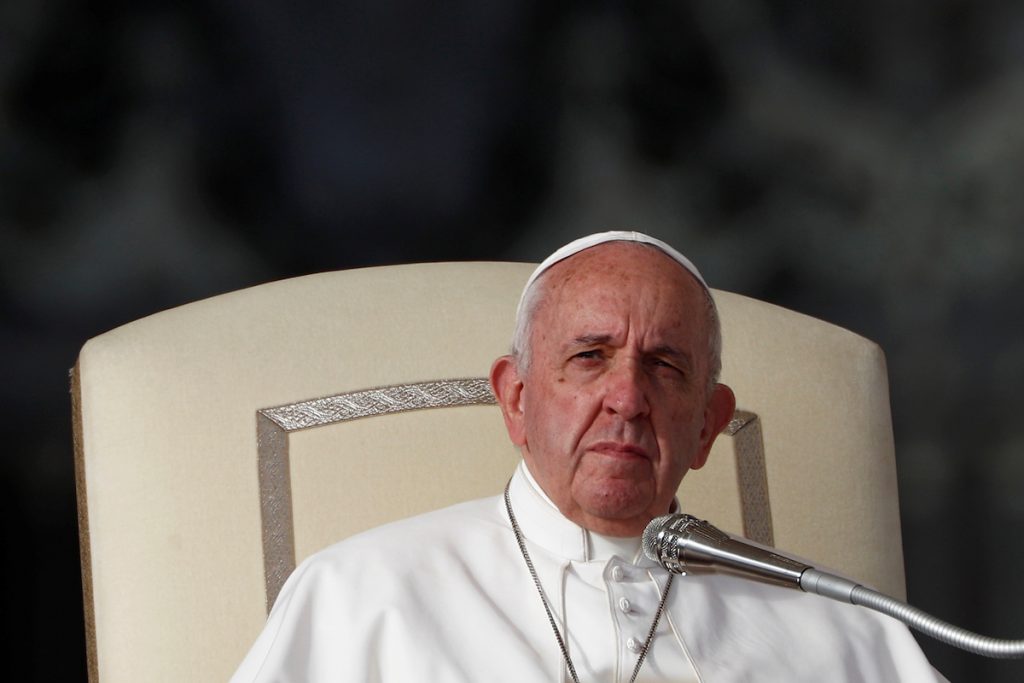
There’s little sign of his influence in the Philippines though.
Bishops here throw their weight around trying to block divorce, bills against discrimination of LGBTQI+, or even badly needed reproductive health like the use of artificial contraception or sexual protection.
These are areas with solid to overwhelming support of Filipino Catholics.
In the face of extra-judicial killings and other forms of political abuse, however, many bishops and priests are silent. Some institutions, like the country’s only pontifical university, have been known to expel students for joining political organizations.
A few bishops like Manila “OIC archbishop” Broderick Pabillo, Bishop Gregorio Alminaza of the San Carlos diocese, and Bishop Pablo Virgilio David of Kalookan have chosen to put themselves between Duterte’s bloodthirsty government and their flock.
Bishop David’s diocese has been ground zero for drug killings. Bishops Pabillo and Alminaza are known for environmental causes. The Philippines ranks second worldwide as most dangerous to environmental activists. Bishop Alminaza’s diocese has witnessed the massacres of farmers and brazen daylight assassinations of rights advocates.
The Catholic Church strongly opposes the death penalty. Surveys show most Filipinos oppose it, too. Yet the same surveys show high popularity and approval ratings for Duterte, even as citizens admit fears that they or their kin could become drug war targets.
The clear disconnect sparks anguish and self-searching among the more socially-conscious religious workers.
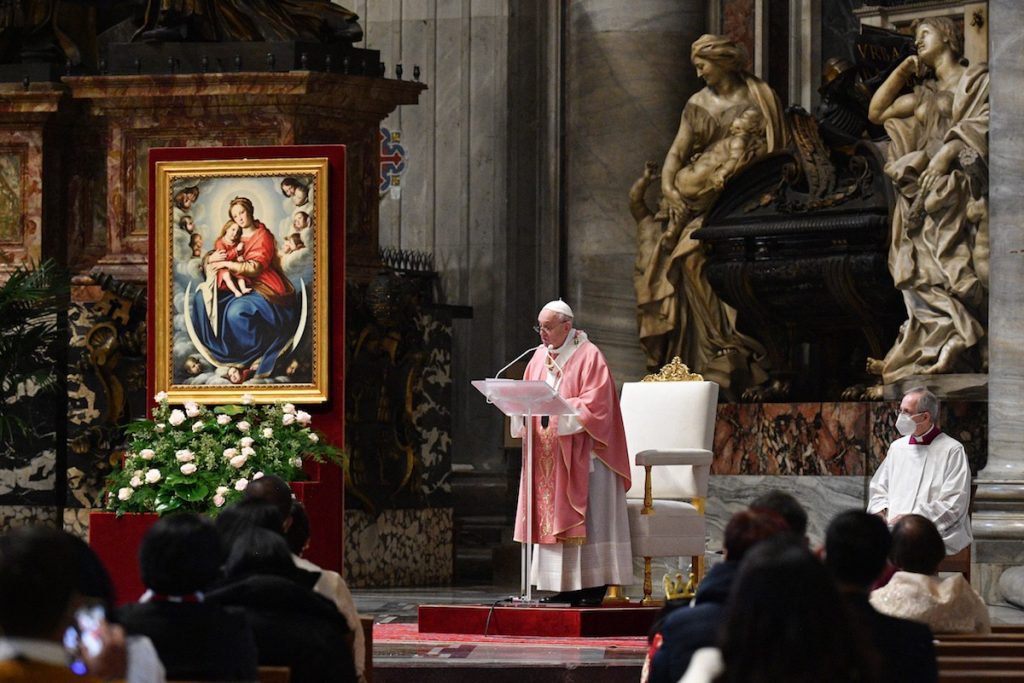
Pope Francis’ homily barely brushed a tangled web of history, facts and perceptions, that make people vulnerable to the machinations of the powerful.
The pontiff likened Filipinos’ “discreet and hardworking presence” to “a testimony of faith” through “humble, hidden, courageous and persevering service.”
I’m sure the pope didn’t mean it to sound like a list of must-list traits favored in servants as drafted by our Spanish masters of yore and the lordly wannabes that followed.
But that’s what it sounded like to me. And those traits he hailed have their dark unberbelly.
Filipinos learned well through centuries of subjugation, first by Spanish and American colonizers, and then Japanese invaders.
Bow humbly to ill-treatment by social betters. Blame self for rousing their ire, and then turn around to lash out at anyone threatening to rock the fragile peace bought by silence and submission.
The former Buenos Aires Archbishop Jorge Mario Bergoglio, Jesuit, would recognize the pattern.
Cross and Sword
The Spanish ship Juan Sebastián Elcano dropped anchor in Philippine waters on March 16 to reenact the Spaniards’ first contact with Filipinos. It was also the first circumnavigation of the world, led by Ferdinand Magellan on the ship’s namesake.
The Portuguese navigator, felled by local chieftain Lapu-Lapu on Mactan island, opened a harbor for Catholic evangelization and colonial rule.
The Cross succors, as does Mother Mary.
Pre-COVID-19 pandemic, thousands flocked to the National Shrine of Our Lady of Perpetual Help just north of the capital to seek her intercession. Old and young shuffle to the altar on their knees.
In the center Manila, more than a million folks throng the streets to celebrate the Feast of the Black Nazarene at the start of the year. Men and women brave bruises, heatstroke, and other injuries to wipe pieces of cloth on the dark, life-sized icon of Christ.
But 300 years of life under the shadow of The Cross has also meant innumerable slashes from The Sword.
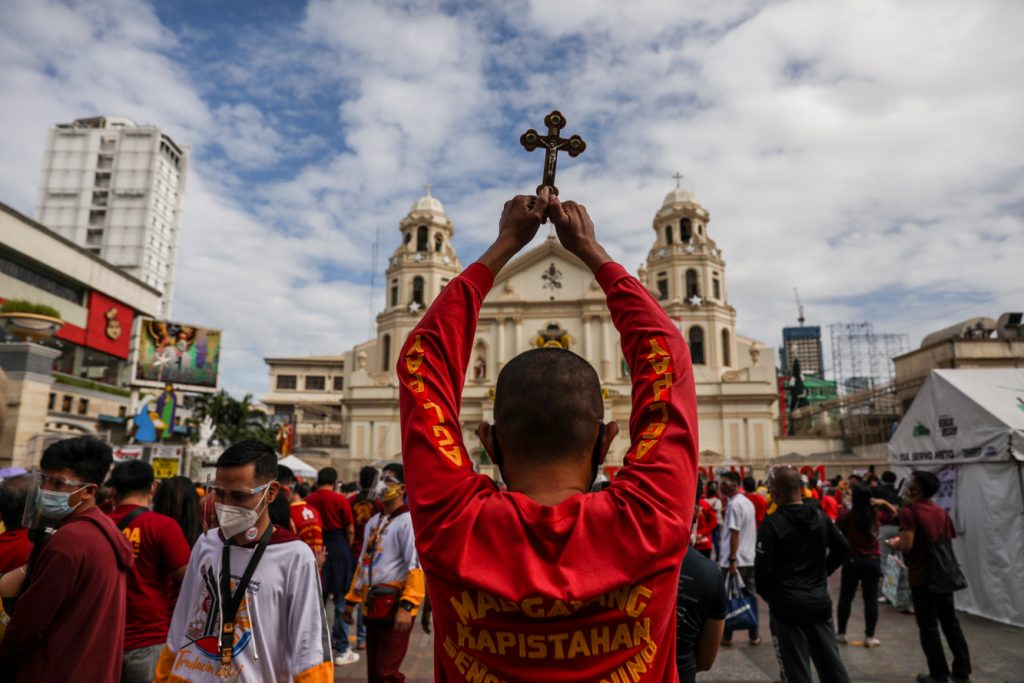
Under Spanish rule, both wielders of Cross and Sword had one goal: taming the natives, whatever that took.
We’re talking 30 generations of believers. Plenty of brawn and talent, taken by force or offered in faith.
That Spanish system of rule still echoes in today’s countryside conflicts. It gave colonisers deep pockets. They built 96 cathedrals across the country.
Grants of land during Spanish and, later, American rule — also bolstered by ships of Christian missionaries — laid the foundations of an oligarchy that continues to dominate Philippine society.
Religion and political control have always gone hand in hand in this country.
The most formidable defense of homelands in the Philippines have come from peoples unwilling to give up their own faith structures, whether the Muslims of Mindanao or the lumad, the southern Philippines’ first peoples.
As many as a quarter of Mindanao’s Muslims fled their homelands in a series of pacification campaigns since American occupation.
Depicted as marauders and pirates in colonial theater, Filipino Muslims continue to suffer discrimination. They are more likely to be overlooked for job openings.
When the national police started hounding activist teachers last year, they also asked principals of state schools to list down the names of Muslim students.
Roars of protest forced police to abandon the project. But with disturbing regularity, Muslims in the capital and across the country find they need to prove they are not terrorists — even if suspicions stem only from ignorance and bigotry.
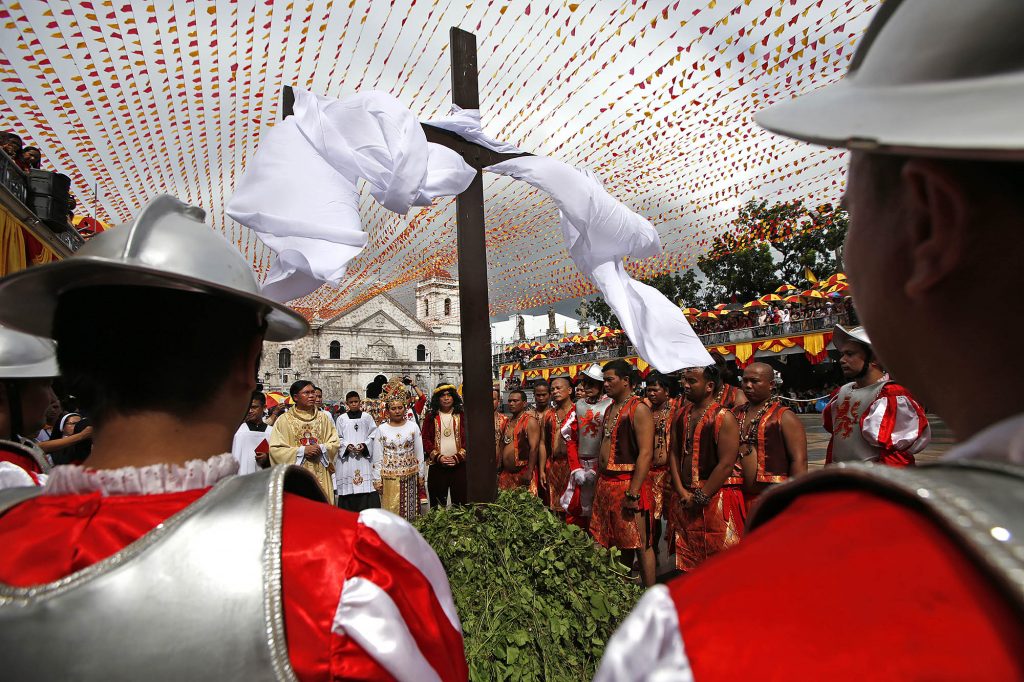
Light and shadow
The Philippines is known as Asia’s only majority Catholic country. Almost 86 million of us were baptized with water trickling from a priest’s finger as cleric, as parents and godparents mumbled the Apostle’s Creed.
Many families still keep the number of godparents small: just a few aunts and uncles and parental friends in the almost-sibling category.
Other clans approach baptism, however, like a political campaign sortie, cocktail hour at a networking smoochfest, or a time deposit in social ties.
Sacraments or religious feast days, and the rhythms of religion introduced by the Spaniards in the early 16th century, form a frame for the ties that bind the Philippine political elite, with hooks to hold the chains of underdogs.
Our annual May festival of flowers allows kids and teens on summer break to explore a deeper catechism. It culminates in a Santacruzan (parade of saints).
The event is billed as celebrating the discovery of the True Cross by St Helena of Constantinople and her son, Constantine the Great. Communities beg social betters to underwrite what is essentially now a beauty pageant cum fashion show.
The Greek historian and polemist of Christianity, Eusebius, described Helena’s deep piety and extreme generosity, not only with her goods. Helena frequently stepped in to help free prisoners, slaves and others in unjust, abusive circumstances.
Nothing has been left in the Santacruzan of Helena’s social activism. It is often a fete for the children of the biggest financial patrons of churches. It has become a cog in a body of interlocking interests, one that encourages our religious leaders to ignore or downplay systemic and individual acts of injustice against those whose souls they claim to serve.
Which is a pity as the Santacruzan does commemorate a pivotal point for Christianity.
Within a year of finding the Cross, Constantine — still not officially a Christian — forged an agreement with another Roman emperor, Licinus, to allow religious tolerance.
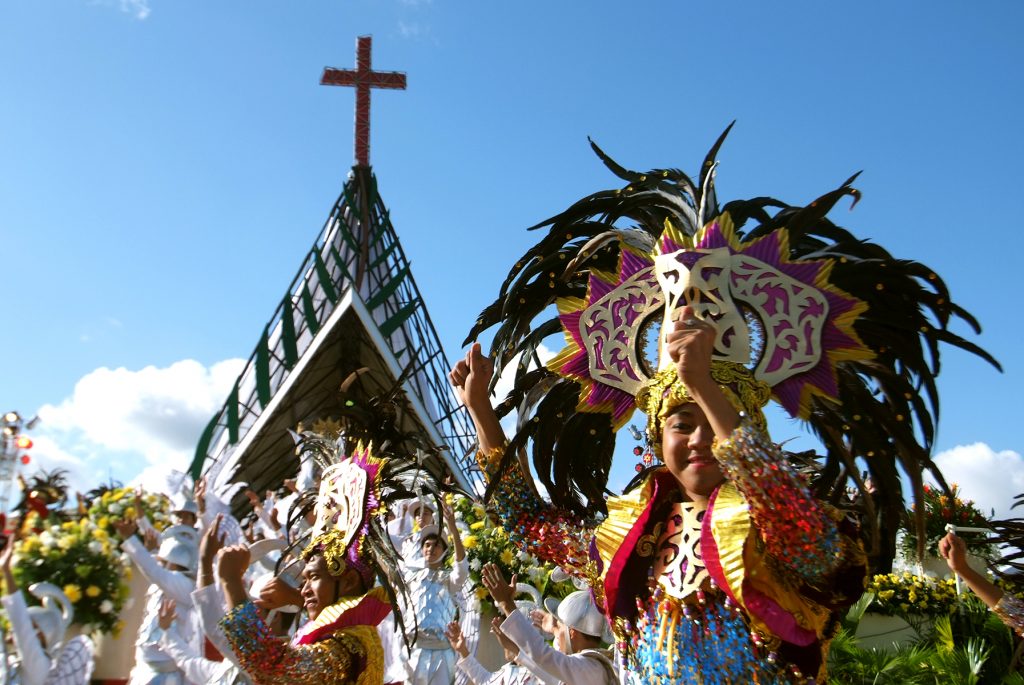
The Edict of Milan didn’t just allow freedom of worship. It guaranteed the legal rights of Christians. It allowed them the freedom to assemble and put up organizations. It even ordered the return of their confiscated wealth and other properties.
The agreement happened in 313. Within a decade, Constantine was the sole ruler of the Roman Empire. In 325 he convened the First Council of Nicaea.
That assembly of a few hundred Christian patriarchs of various strains gave us the core of what we now recite as the Apostle’s Creed.
The Church, however, later exploited Constantine to justify its temporal powers or political authority. It rolled out some four centuries after his death the “Donation of Constantine.” It showed the emperor transferring authority over Rome and the western part of the Roman Empire to the pope.
Scholars in the 1400s debunked it as a forgery but by the time the Spaniards landed in the Philippines, and for a long time after, cross and sword were powerful bedfellows.
In Philippine national hero Jose Rizal’s famous novel, Noli Me Tangere (Touch Me Not), conflict starts with a Spanish friar’s refusal to extend Catholic burial rights to an ilustrado, a member of the genteel class of natives.
The female in the pair of tragic lovers flees an arranged marriage to become a bride of God. Another woman goes mad when two sons, apprentice altar boys, disappear when accused to stealing from the poor box.
In this novel and its sequel, El Filibusterismo, the friars are shown resisting locals’ efforts to expand education, fearing the fallout when minds are honed to be critical. Even the Filipino elite lashed out at those who challenged their reflected riches with new ideas.
Rizal’s novels showed the roots of rebellion. Hundreds of years after Filipino freedom fighters defeated Spain, which sold the country to the Americans, these roots are embedded deep in our land.
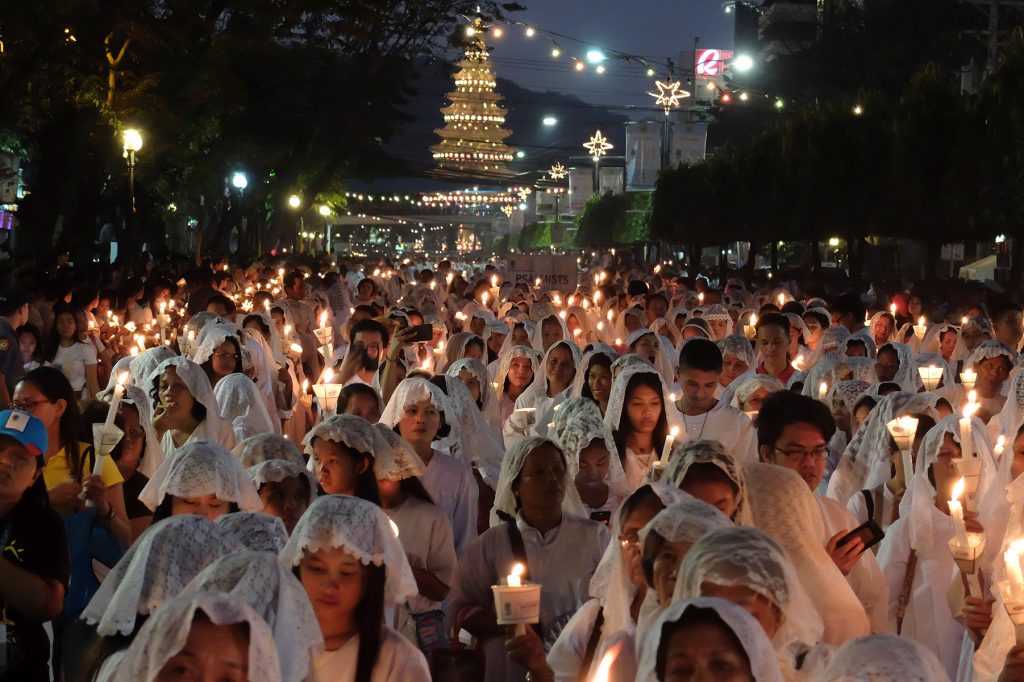
Christianity vs Christendom
In Mindanao, the largely animist Lumad scattered across the richest earth, have suffered of dispossession at the hands powerful Filipino Muslim tribes and, later, Christian migrants from the main island of Luzon and the central Visayan islands.
Today, Duterte’s military hounds them. The Lumad are accused of being communist terrorists for their defense of ancestral lands. The president wants to open up their lands to plantations. His cronies and foreign patrons want the mineral riches under the earth.
The Philippine Church turned progressive under the late Ferdinand Marcos’ two-decade dictatorship and their involvement with the Lumads’ struggle has remained strong.
In the 1980s, the late Bishop Ireneo Amantillo of the Diocese of Tandag, a Redemptorist, helped found a literacy and numeracy program for the Lumads that eventually transformed into an award-winning alternative school.
Bishop Amantillo and his successor, Bishop Nereo Odchimar, practice what the pope suggested in his homily, “evangelizing without proselytizing,” helping without the pressure of conversion.
Churches of different denominations in Mindanao opened grounds to those fleeing by conflict. They helped in funding and staffing small schools, churning out the first graduates in tribes where eight of ten members had never received education.
Duterte’s government has closed down 178 of these lumad schools, disenfranchising 5,500 students. It has attacked religious orders and organizations serving indigenous folk.
Catholic clergy, nuns and laity helped Filipinos peacefully oust a dictator in 1986. Other nuns and priests, hunted for their social work in the countryside, went underground and joined the communist rebellion.
Thirty-five years later, the country is on the brink of full-blown tryrany, without Duterte having to sign any document for nationwide martial law. Many Catholics openly espouse his kind of governance.
As the country celebrates 500 years Christianity, our religious leaders sometimes wonder how far the flock has strayed.
The faith brought by Spain to our shores in the 1500s is the same faith we profess today. But that faith carries two aspects: the light of Christianity and the sometimes dark influence of Christendom.
Christianity is Christ’s words and examples. Christendom is the political infrastructure that often excuses its excesses on the need to spread or defend the faith.
The Christian code of behavior lies in the Ten Commandments and in the preaching of Christ.
Father Wilfredo Dulay, coordinator of the Missionary Disciples of Jesus, says Philippine history and current events should prompt the question: “Have we ever been truly Christian?”
Christendom is grandiose in the Philippines. It comes with many trappings: rites and feast days — sometimes glittering, sometimes bloody; Pilgrimages, indulgences that usually come with a price tag, as do relics and devotions.
“Some clergy and laity think these are emblematic of the Christian faith and see salvation as dependent on these,” Father Dulay notes.
I have sometimes imagined the Church built on Peter’s rock as a giant mass of barnacle, especially when running into cold shepherds.
When the gatekeepers of the Cross also have the power of dispensing life and death, poverty and riches, or influencing their outcomes, Christendom can seem to swamp Christianity.
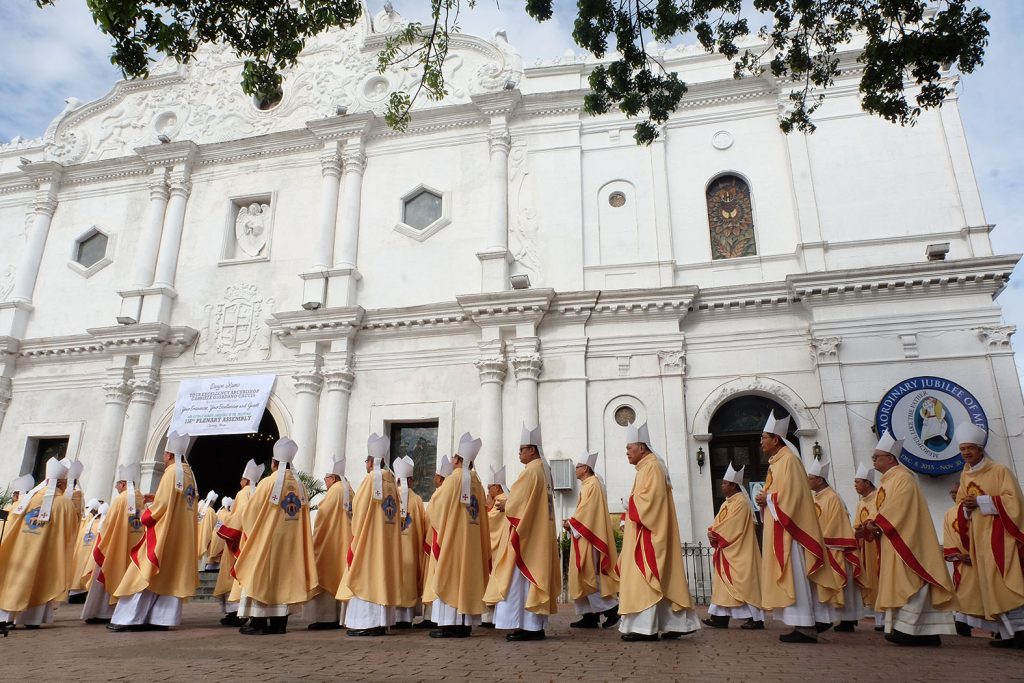
Pope Francis acknowledged this in October 2019 at the opening of the Synod of Bishops for the Amazon.
“How many times has God’s gift been imposed, not offered? How many times has there been colonization rather than evangelization!”
I waited for words like this as he addressed the Philippines. At the very least, a challenge to the Church.
As the homily ended my mind conjured gentle, ineffectual waves sloshing on a poisoned black and gray bulk, a blanket of limpets clinging to a false idol.
But there might be a logic to the pope’s circumspection. I may be reaching for nothing, but those mild words might represent a map for the embattled religious sector. Continue aiding victims of injustice but be aware of where dangers lurk.
The pope has intimate knowledge of what faces social activists in the Church. He has seen his priests and clergy gunned down, churches bombed. He knows words from Christendom’s highest official can only do so much.
Maybe the Holy Father is right not to make us hope too much in the temporal might of Christendom’s highest official.
We’ve spent 500 years hitching salvation and advancement to the power side of faith. We’ve also spent that same amount of time seeing defeat and redemption through the lenses of rulers.
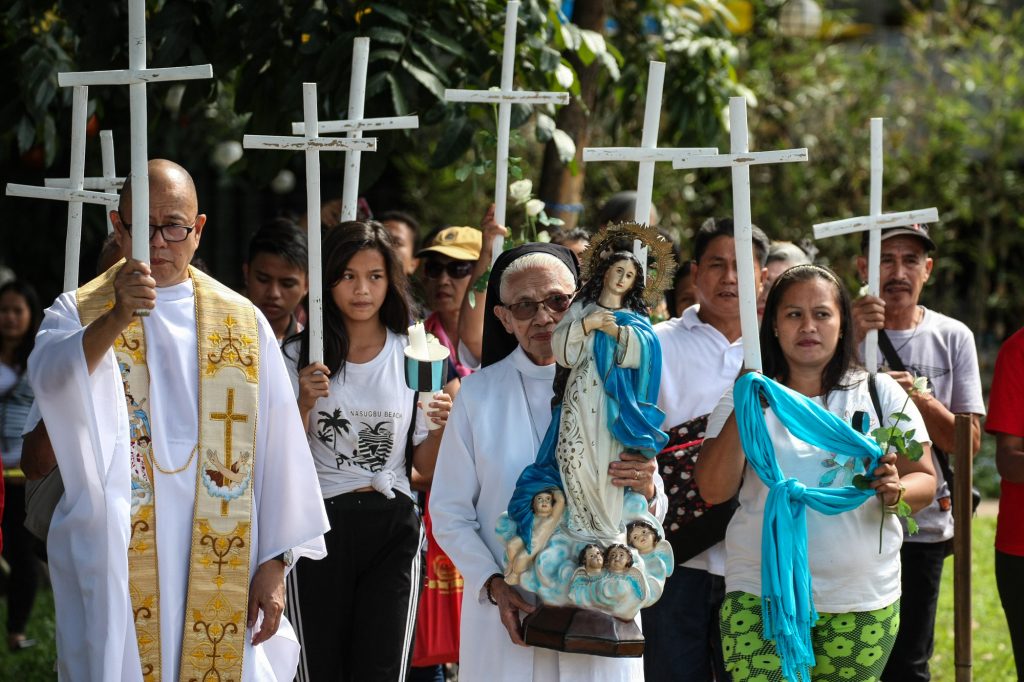
But we weren’t always blind.
“Our own ancestors were intelligent enough to accept what was good and reject what was evil in what the Spaniards had brought with them when they came to our land,” Bishop David wrote in an overview of Christianity in these islands.
“They also eventually learned to distinguish between the missionaries who had totally allied themselves with the colonial politics of the conquistadores and those who were critical of it, those who had the courage to defend the rights of the natives against the abuses and cruelties of the colonial masters.”
Of course, they did. Otherwise, we would never have defeated Spain.
The subjugated do not rebel overnight. The surveys that claim high approval ratings for Duterte also show Filipinos repudiating most of his policies that have bred abuse.
The pandemic’s dangers has dampened the ability to organize huge protests. And fear of the high price of resistance is real; 61 lawyers have been killed since 2016, the year Duterte assumed power.
Pope Francis may be telling us we need to stop obsessing about salvation on a strictly temporal scale. We’ve had ousters and revolts and coups in this country, and yet they have not plugged the national wells of misery.
The end of Duterte is not going to change the landscape of injustice in this country. Perhaps a genuine return to Jesus’ life and works will give Filipino Christians greater confidence in our ability to hold governments to these standards. And it starts with our relations with those who call themselves shepherds.
Inday Espina-Varona is an award-winning journalist in the Philippines. She is a recipient of the “Prize for Independence” of the Reporters Without Borders in 2018. The views expressed in this article are the opinions of the author and do not necessarily reflect the editorial stance of LiCAS.news.
Source: Licas Philippines
0 Comments